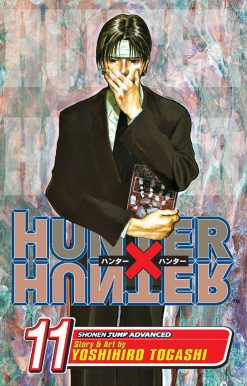The Magician’s Accomplice
14.00 JOD
Please allow 2 – 5 weeks for delivery of this item
Description
An indigent student has been shot and killed in an upscale hotel in the center of Bratislava. It appears to be a professional assassination, but who would want to kill a starving student? After examining the crime scene, Jana Matinova pays a visit to her lover, a government prosecutor. But when she arrives at his office, she learns that he’s been killed by a phone bomb. Jana is devastated but determined to find his murderer. Professional killings aren’t common in Bratislava. Could the two deaths be connected? Before Jana can even begin investigating, she is transferred to The Hague, headquarters of the international police force of Europol. On the flight, she encounters a retired magician who turns out to be the dead student’s uncle. He wants to help Jana investigate his nephew’s death. And his help is needed, as Jana is soon confronted with an international conspiracy emanating from Europol itself.
Additional information
| Weight | 0.38 kg |
|---|---|
| Dimensions | 2.04 × 12.7 × 19.05 cm |
| PubliCanadanadation City/Country | USA |
| by | |
| Format | Paperback |
| Language | |
| Pages | 342 |
| Publisher | |
| Year Published | 2011-7-12 |
| Imprint | |
| ISBN 10 | 1569479526 |
| About The Author | Michael Genelin is a graduate of UCLA and UCLA Law School. He has served as a consultant for the US State Department and USAID in Central Europe, Africa, Asia, and Haiti. He lives with his wife in Paris. |
“Jana, like a Femme Nikita working the right side of the law, and her professor sidekick are a study in opposites, trading the roles of magician and accomplice in order to stay one step ahead of the assassins. Genelin, like a consummate conjurer himself, effectively deploys a complex story and massive cast of characters to dazzle the reader and pull more than a few rabbits out of his hat.”—Boston Globe“The reader gets quite a lot in Michael Genelin's Jana Matinova investigation novels. There's always a fast-moving plot, a whodunit mystery element, a travelogue that includes some lesser-known spots in Eastern Europe, perceptive social and political commentary on Europe in the post-Soviet era and a wide array of vivid characters… It also allows us an insider's look on the bureaucracy of today's Europe, equally ominous on both sides of what used to be the Iron Curtain.”—Pittsburgh Post-Gazette“Along with the authenticity of place, the relationship between this unlikely duo is one of the treats of this novel.”—Milwaukee Journal-Sentinel“There are no gimmicks, or sleight-of-hand tricks, just dogged pursuit, plenty of worn shoe leather, and characters that are generally not what they appear to be…. The Magician’s Accomplice is a classic police drama and mystery complete with fine dedication to principles.”—New York Journal of Books“In Genelin’s superb third novel featuring Slovakian police commander Jana Matinova … [he] brilliantly blends action and detection, never allowing the plot twists to overshadow his character’s humanity.”—Publishers Weekly, Starred Review“Genelin pieces his plot together by beginning with relatively few clues and allows Matinova to use her great investigative ability to see what is behind a crime. In this exceptionally wrought story full of cloak-and-dagger suspense, the author slowly reveals the motivation for murder and the life-threatening situation Matinova finds herself in, and this makes the third series title (after Siren, Dark Dreams) perhaps the best yet. Fans of Sally Spencer and Lynda La Plante … will love this one.”—Library Journal, Starred Review |
|
| Excerpt From Book | Chapter 1The Savoy Hotel, once known as the Imperial Hotelor the Grand Hotel when the Hapsburgs reigned inSlovakia, was now the Carleton Savoy, part of a worldwidechain. The new owners had retained its classic façadeso it still maintained its old majesty, satisfying the localcity officials that they had not destroyed the “spirit ofBratislava.” This, in turn, placated most of the old residentsof the city, allowing them to continue telling theirstories about the happenings during the Hapsburg reign.Of course, the owners of the hotel had gutted the interiorand filled it with the new amenities foreign travelers nowdemand. Most of the Savoy’s aristocratic ambience hadbeen lost in the process.Denis would have been happier with the old building.Even though he was young, he was a traditionalist: unlikeother traditionalists, he accepted change as the way of theworld, particularly today. On this Friday he was lookingforward to the Royal Breakfast the Carleton Savoy providedfor its guests. The breakfast buffet, set out in thedining room, was truly scrumptious, arrayed on a multiplicityof tables that occupied the whole center of a hugearea, the platters of food encompassing everything theheart could possibly desire for breakfast.Denis was not a guest of the hotel. He could never haveafforded a room here, even for one night. Like so manystudents in Slovakia and the rest of the world, Denis hadvery little money. He scrimped and scrounged his waythrough life, but today he was going to have a specialtreat. This weekend his belt would not pinch his backbonethrough a screamingly empty stomach, courtesy ofthe Carleton Savoy’s Royal Breakfast.To accomplish his mission without being discovered,Denis had dressed up in his only suit, put on a whiteshirt and tie, brushed his shoes, not forgetting to put alittle fireplace soot on the leather to conceal the scuffs.To complete his image, he carried a large briefcase. Onceat the entrance to the hotel, Denis took on the slightlybored look of a guest and walked through the front doorsinto the lobby as if he belonged. Today, as he passed thedesk, the pretty young receptionist with the enormousbrown eyes nodded at him. Denis nodded back with aslight smile, picking up a Slovak daily newspaper providedfor guests on one of the large, ornate lobby tables, thenwalked to a corner chair next to a massive urn filled withnewly cut flowers and unfolded the paper. Denis scannedthe front page. The major headlines revealed that a loanfirm had been burglarized and two hundred thousandeuros had been stolen; the president had condemned acontract with the foreign oil company that was to exploitthe new field found in the low Tatras; Finland’s minister ofeconomics had been killed in an apparent robbery; and theCommunist Party legislators were making noises aboutdelaying the enforcement of the new penal code. More ofthe same garbage, Denis thought. He managed a chuckleat the editorial cartoon with the U.S. pictured as an infantgiant, a baby bottle labeled with a dollar sign in one hand,the other wiping his backside on little Slovakia.Denis took a quick look at his watch. Mr. Fico was duein two minutes.Every morning, Fico, as prompt as the clock over thedesk, would hurry through the lobby, pass though thefront doors, and walk out to the sedan that was waitingto take him to his business appointments. Fico did notgenerally have breakfast, which was the reason for Denis’sinterest in him. Although the man didn’t know it, he was thekey to filling Denis’s stomach. This morning, Denis wouldidentify himself to the maitre d’ servicing the dining areaas guest Miroslav Fico, Room 321. Denis merely neededto be sure that the real Fico had left before he commandeeredthe man’s identity.The elevator door beeped as it arrived on the groundfloor, and right on time, Fico, leafing through a sheaf ofpapers he was carrying, bolted out and, looking neitherright nor left, went through the front doors, entered avehicle, and was driven out of the parking area. That wasDenis’s cue.Denis folded his paper, picked up his briefcase, and,looking for all the world as if he belonged, casuallystrolled into the dining room.“Good morning,” he nodded to the maitre d’, makingsure to articulate clearly, “Room 321, Fico.” The maitred’ checked off the number and name on his guest listand paid no further attention to Denis. The young manselected a window table, placed his briefcase on it, saunteredback to the multiplicity of tables laden with food,and, picking up a plate, strolled down the row. Therewas all kinds of cheeses, sausages, timbales of hot meats,Oeufs Benedictine, Oeufs Diablo, and Oeufs Bordelaise inhot trays, cold loin of pork with citrus fruit, baked ham,honey-roasted bacon with peaches, three types of quiche,tomato clafoutis, chevre infused with cognac on toastedwalnut bread, melon, berries, and exotic fruits.Denis viewed them all, just to be sure he didn’t missanything, then walked to the other side of the tables. Heeyed the stewed chicken with chestnuts and ginger, buckwheatpancakes, gravlax, all types of rolls overflowing theirbins, four types of fresh-baked muffins, and maple pecanwaffles. It went on and on, truly a royal banquet. For asimple student, the array was mind-boggling. He decidedto ignore most of it and focus on what he liked.Denis decided his first course was to be simple. Initially,eggs, scrambled. Then fruit. Then a side dish of cereal,bacon, of course, and fresh rolls, and maybe just a bitof sweet cake to treat his palate. At the last minute, hedecided to also have a few slices of sheep’s milk cheese anda pair of sausages. His second and third trips would entailvery little eating but a lot of filling his briefcase with foodenough to take him through the next few days.Denis sauntered to the window table where he had lefthis case and seated himself facing out the picture windowlooking toward the greenery and fountains, and an almost180-degree panoramic view of Hviezodoslavovo Square.He set his dishes on the table, placed his napkin on his lap,then took his first forkful of eggs. They were delicious,mixed with some ingredient that Denis couldn’t identifywhich made them smoother and moister than normalscrambled eggs.As he ate, Denis watched the pedestrians outside thebuilding. Beyond the hotel, people were scurrying towork, many coming from the direction of the Nový Mostbridge, others from that of the baroque National Theateron the opposite side of the square, all busy ants goingabout their morning activities in Bratislava’s Old Town.Denis felt wonderful, momentarily the lord of all he surveyed,pretending to wealth he didn’t have, eating a leisurelybreakfast while everyone raced to jobs. If it weren’tfor the final exams at the university next week, it would bea perfect moment to be alive.Outside, a man approached the window. The figurein a bulky black overcoat filled Denis’s vision. The man’seyes were hidden by dark glasses, but there was no doubtthat he was looking directly at Denis, examining him as ifhe were some type of small caged animal. For a moment,Denis felt a surge of anxiety, wondering if his fraud hadbeen detected, then decided that it must be somethingelse; the man was not dressed as a member of the hotelstaff. Denis smiled, trying to appear friendly, wonderingwhy the man continued to stare at him through thewindow.Make him happy, Denis thought. It was morning and allwas right with the world, Denis told himself. Today, insidethe restaurant, he was a star. And, this morning, he evenhad an audience. It was a good time for him to perform alittle sleight of hand.Denis pulled a coin out of his jacket pocket, an Americanquarter. He picked up his napkin with his left hand, wavedit in the air, and then covered the twenty-five-cent piecewith the napkin, holding it so that the quarter was visibleunder the white cloth. Denis then bit through the cloth,into the quarter, twisting the coin with his teeth. Underthe cloth the coin looked as if it had been bent in half.Denis went through the process again, this time reducingthe coin obscured by the cloth to one-fourth of its size. Hethen whipped the napkin off the cloth, showing that thecoin had indeed been bent in half, then half again. Aftera quick pause, Denis whisked the napkin over the coin,furiously rubbed the coin beneath the cloth, and then tookthe coin out. It had been restored to its original shape.Denis looked cheerfully at the man outside the windowfor a response. The man was scanning what appeared tobe a photograph through his dark glasses. The magic-coinact had not interested him. Denis felt like a failure; he toldhimself that some people are hard to entertain.The man pulled a small automatic from his pocket andpointed it at Denis. Denis got out one word, “No!,” whenthe man began firing. Five bullets pierced the window.The thick glass did not shatter, but the bullets left holesin the window, each surrounded by the slightest spidering.All of the bullets hit Denis. He was dead after the secondslug hit him. The other shots had been fired as insurance.The coin and napkin that Denis had used for his magicact slipped to the floor. The murderer pocketed his gunand quickly walked away, mixing with the passersby.People outside the hotel who’d heard the shots milledaround anxiously; but in the huge space fronting the hotel,the gunshots had reverberated and it was not clear wherethey had come from.The murder, and the murderer’s escape, were overbefore anyone noticed that Denis, still sitting at breakfast,was dead. Aside from a few forkfuls of eggs, the youngman had not eaten his royal meal.Chapter 2Jana Matinova was sound asleep after a night of investigatinga barroom brawl that had resulted in the deathsof two men and one dog. The bar’s manager had orderedthe dog’s owner to remove his dog. The man refused. Themanager tried to pull the dog out by his collar. The dog bithim. The manager lost his temper and hit the dog over thehead with a bottle, killing it. With that, the dog’s ownerattacked the manager with a knife, the manager used abroken bottle as a weapon, and before long both men weredead, one from stomach and lung wounds and the otherfrom a severed artery.Jana considered not answering the phone when it rang,but commanders of the Slovakian police are required topay attention to their phone calls, so she eventually pickedit up. “Be quick with whatever it is you have to tell me,”she said. She had been dreaming of her lover, Peter Saris,and resented the interruption.“Commander Matinova, it’s Warrant Officer Seges.”She did not like to hear from her warrant officer duringoffice hours, much less when she was in a deep sleep.She checked her alarm clock; she’d managed to get exactlyan hour and a half of sleep. Jana was about to launch intoa diatribe when she realized that Seges was aware she’dworked all night. One thing he knew, under these circumstances,was not to call unless it was urgent.“The prime minister has been assassinated, I take it,”she suggested.“No, but there’s been a murder.”“So, assign two of the senior men.” There was a procedurefor such events. Jana was still in the grip of sleepand could not remember who was on duty at the moment.“There’s a duty roster. You should know who to assign.”“Commander, Colonel Trokan asked me to call you.”She sat up in bed. It couldn’t be a simple murder ifTrokan wanted her on the case.“Who was killed?”“From what our patrol people said, a student.”“From a well-known family?” She swung her legs fromunder the covers and sat on the edge of the bed.“No, Commander.”“One student killing another?”“I don’t think so, Commander. I was told it looks like aprofessional assassination.”That jolted her awake.“Where did it happen?”“At the Carleton Savoy.”A professional killing at the Carleton. Now it madesense. The colonel was a canny man who carefully watchedhis back; he would want her to supervise this case. Itwould make the news. And whenever there was big moneyinvolved, as there was with this hotel, the managementwould want assurance that the police thought enough of theseriousness of the situation to attach a senior officer to leadthe investigation.“Send a team to the site.”“They’re already there.”It wasn’t like her warrant officer to be this efficient. Hewas too lazy and inept. But, she guessed, even Seges recognizedthe need to appear competent on a case like this.“I’ll be there,” she growled into the phone, then hung up.Thirty minutes later she walked through the front doorof the hotel.The dining-room staff huddled at two tables in the corner,as far away from the murder victim as they could getand still be in the room. Several guests occupied anothercorner. They were being selected and questioned one byone in the atrium area by the investigators from Jana’sdivision.Jana nodded to her men. One of them, Benco, beganto approach her. Jana gestured him back to the witnesshe was questioning. She surveyed the room, the table atthe window where the body was still being examined andphotographed, then focused through the windows on thearea fronting the restaurant.A perimeter of barriers had been set up outside to keepthe gawkers away. Canvas, quickly supplied courtesy of thehotel, had been stretched high enough to block both thewindow in front of the body and the immediate area aroundit. They didn’t want people to see a corpse inside the diningroom. Bad for business.Jana walked to a table next to the body, where Elias,another of Jana’s investigators, was seated listing the contentsof the dead man’s briefcase as well as the items thathad been taken from his pockets.“Commander,” he nodded at her. “The kid’s name wasDenis Macek, a student at the Polytechnic University.”He slid the decedent’s student ID over to her. Jana studiedthe picture of the young man in the left-hand corner ofthe laminated card, then put it down. Not much else, noteven a book in the briefcase. Just waxed paper peeping out,apparently lining the case. She fingered the paper. “Thisis the first time I’ve seen a male student who took such athing as cleanliness at all seriously.” She sighed. “I guess Ihave to go pay my respects to the dead.”“Good morning, Denis,” she murmured to the body asshe started examining it. “I’m truly sorry you find yourselfin this position. I grieve for you. If you’d lived, you mighthave gone on to raise a family and do great things.” Sheglanced around and saw their photographer sitting in achair, munching on a celery stick he had purloined fromthe food tables, which were still set up. “Have you got allthe photographs you need?”He wiped his mouth. “Yes, Commander.”Jana looked at the holes in the window next to the deadstudent. “Did you get close-ups of the area in the windowpenetrated by the bullets?”“Of course, Commander.”She checked the floor under the dead youth. A napkinand what looked like a coin barely protruded from beneaththe decedent’s shoe.“These items as well,” she instructed the photographer.Jana moved the victim’s foot slightly to reveal the coin.She signaled the photographer to take a few more photosand then picked up both the coin and the napkin.She moved around to the other side of the table to facethe dead youth. For a student, he was all dressed up. Itwas neither Sunday nor a holiday. Students were rarelyattired the way he was unless forced to by their parentsor by other pressing circumstances. Jana slipped on a pairof plastic gloves and looked closely at the bullet holes inthe window, checking the angle of the shots as well as shecould, even feeling the holes to check their paths throughthe glass. A close pattern, which meant an individual whoknew how to handle a pistol. A professional. |
| Series |
Only logged in customers who have purchased this product may leave a review.






Reviews
There are no reviews yet.